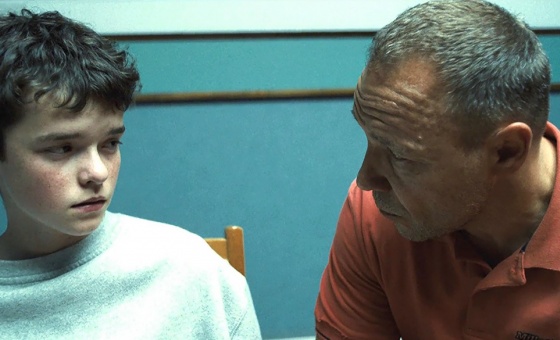This is the last article you can read this month
You can read more article this month
You can read more articles this month
Sorry your limit is up for this month
Reset on:
Please help support the Morning Star by subscribing here
SINCE its inception in 2021, Toothless in England has evolved from a local grassroots movement into a nationwide campaign, tirelessly advocating for accessible NHS dental care.
What began as a response to the closure of the last NHS dental practice in Leiston, Suffolk, which left over 5,000 residents without local access to care, sparking outrage and action, quickly gained traction, resonating with communities across England facing similar struggles.
It has enjoyed the support of the Morning Star from day one.
Initially called Toothless in Suffolk, Toothless in England has grown into a powerful voice for millions of dental patients left underserved by a crumbling system. The campaign’s growth mirrored the escalating NHS dentistry crisis. By 2023, Toothless had spawned 16 regional lobby groups, from Cornwall to Newcastle, each highlighting local “dental deserts” — areas where NHS dental services are virtually non-existent.
Our advocacy contributed to the health and social care committee’s inquiry into NHS dentistry that year. The inquiry confirmed what Toothless had long asserted; the 2006 General Dental Services Contract (GDS Contract) was unfit for purpose, disincentivising dentists from taking on NHS patients and exacerbating access issues. This then pressured the government into action, and led to the Dental Recovery Plan. The plain aimed to add 1.5 million treatments, tinkered around the edges of the GDS contract, but fell short on tackling the core issues.
Yesterday, the public accounts committee (PAC) published its report into the Conservative government’s 2024 Dental Recovery Plan. Picking up from where last year’s National Audit Office investigation left off citing “significant uncertainty” in its impact, the PAC’s findings confirmed what we had warned about. Its report has exposed a glaring discrepancy between the government’s stated commitment to easing some of the challenges patients encounter when trying to access NHS dentistry and the actions taken by those responsible for carrying out that commitment.
Labour’s Dentistry Rescue Plan, which promised 700,000 urgent appointments, supervised toothbrushing for children, and contract reform, was broadly welcomed.
Yet, as Toothless in England’s open letter to Health Secretary Wes Streeting in July 2024 urged, declaring a “dental emergency” was essential to match the scale of the crisis — a call that remains unanswered. And Labour’s promises have yet to materialise into tangible improvements, leaving Toothless to question the political will to prioritise dentistry.
Over the past four years, Toothless in England has highlighted the deepening crisis in NHS dentistry, exposing the profound suffering of patients and the apparent lack of resolve from successive governments and NHS England to address the dental crisis. Despite some policy promises, the plight of dental patients remains dire in 2025, with access to care still elusive for many, perpetuating a public health emergency that affects both individuals and society at large.
Dental patients continue to suffer in 2025, a stark reminder of the government and NHS England’s failure to deliver systemic change. The statistics are grim: up to 97 per cent of new patients seeking NHS dental care are turned away, and 90 per cent of practices are not accepting new adult NHS patients. Waiting lists stretch to years, forcing desperate measures — with some patients resorting to DIY dentistry with pliers, while others travel abroad for “affordable” treatment.
Stories abound of crumbling teeth, chronic pain, untreated infections, deaths caused by dental sepsis and undiagnosed mouth cancers, with vulnerable groups like the elderly and low-income families hit hardest. For instance, cancer patients face delays in life-saving treatments due to inaccessible dental check-ups, a ripple effect Toothless has repeatedly highlighted.
The consequences extend beyond oral health. Untreated dental issues cost the economy through lost productivity, burden A&E departments with non-dental emergencies, and widen health inequalities.
The campaign has worked closely with the British Dental Association and other campaigners. It has proven to be flexible and innovative in its approach, as when it secured funding to deploy mobile dental services in crisis areas.
This approach, though proven to work, was rejected as an option by Chief Medical Officer for England and adviser to the government Chris Whitty. Likewise it campaigns for funding and reopening of dental units in local hospitals.
Toothless in England’s journey has been one of resilience, shining a spotlight on this neglect, yet the pain of dental patients persists. Without bold reform which, as well as dentists, utilises the skills of dental nurses, hygienists and dental therapists, the crisis will deepen.
The campaign was founded on a six-point charter. These consist of the following:
1. An NHS dentist for everyone
2. Reforms to the NHS dental contract that will encourage dentists to provide NHS treatments
3. Revenue to cover the 50 per cent of the population that are unfunded by the government
4. NHS dental treatments to be free at the point of use
5. People to be prioritised before shareholder dividend — no more privatisation
6. An end to the two-tier system — hygienists, dental therapists, routine check-ups and preventative treatments must be a core NHS function.
Four years on, Toothless in England continues to press for action and fundamental change. Patients remain the casualties of a broken system, their voices echoing through Toothless’s unrelenting fight.
Want to get involved? Get in touch with the campaign at [email protected].











